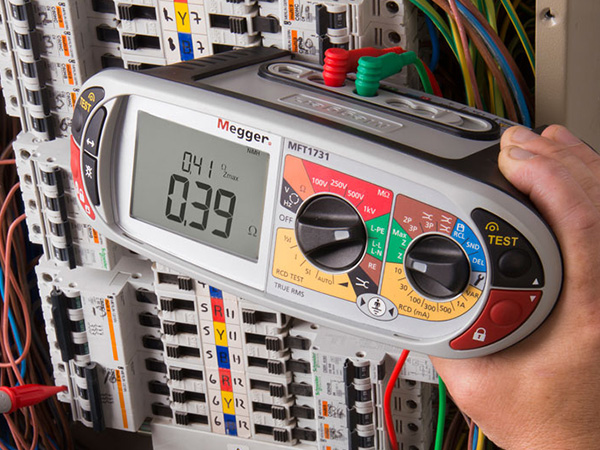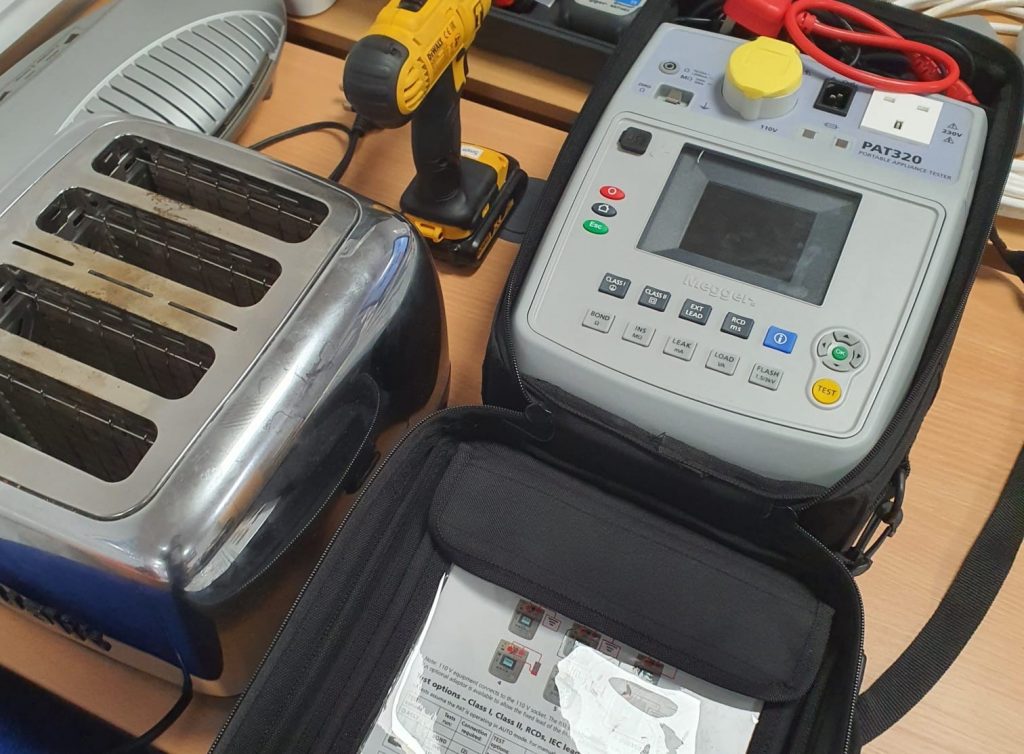Course Title: City & Guilds Inspection and Testing (including Electrical Installation Condition Reporting)
Course Length: 5 days of training plus a 1-day assessment the following week
Qualification Expiry: 5 years
Cost: £995 + VAT
Course Title: City & Guilds Inspection and Testing (including Electrical Installation Condition Reporting)
Course Length: 5 days of training plus a 1-day assessment the following week
Qualification Expiry: 5 years
Cost: £995 + VAT

This 2391-52 course combines the ‘2391-50 Initial Verification’ and ‘2391-51 Periodic Inspection’ into one complete inspection and testing 2391 course. It equips you with the skills needed to safely test both new and existing electrical installations. The course covers:

The 2391-52 City & Guilds Inspection and Testing course is a Level 3 qualification that combines initial verification (2391-50) and periodic inspection (2391-51) training into one course. This 2391 inspection and testing training is designed for current electricians wishing to gain the knowledge and hands-on skills to test, inspect and certify new and existing electrical installations. It also includes education on EICR (electrical installation condition report) documents. This qualification is ideal for those seeking to register with the Registered Competent Person Electrical scheme or expand their professional capabilities.
This course is intended for current electricians aged 18 or over who already have a relevant Level 3 electrical qualification, such as City & Guilds 2365, 2357, 2330, 8282, 5357 or 5393. It’s ideal for those wanting to refresh their City & Guilds inspection and testing skills. Unsure about your eligibility? Get in touch with the friendly team here at MGE Training, and we’ll get you sorted.
For this inspection and testing 2391 course, assessment takes place the week after training and includes a written exam and hands-on practical testing using real 3-phase rigs and live equipment.
As well as the points listed above, you’ll also gain knowledge and hands-on experience in the following areas:
Health and safety requirements
Electricity at Work Regulations
Relevant certification and documentation
Factors affecting conductor resistance values
Common earth fault loop paths
Methods for verifying protection
Determining fault current requirements
Testing frequency in line with Guidance Note 3
Routine electrical installation checks
Required tests and procedures
Phase rotation principles
MGE Training offers practical, professional training across a range of electrical and gas disciplines, all in our supportive, well-equipped training environment:
To enquire about course places call us on 0121 557 7009 or email enquiries@mgetraining.co.uk. Alternatively, use the contact form below and we’ll get back in touch as soon as possible.
This Level 3 course helps qualified electricians progress into roles involving testing, inspecting and certifying installations, or apply for Competent Person Schemes. It can also open the door to Level 4 qualifications, such as electrical installation design and verification.
If you don’t pass the first time, MGE Training offers resit options for a fee, with support from our tutors and our downloads section to help you prepare and complete your 2391 inspection and testing qualification.
The inspection and testing 2391-52 course is simply a combination of the 2391-50 (initial verification) and 2391-51 (periodic inspection) elements, meaning those who qualify can safely and legally work on both new electrical installations and existing electrical systems without the need to sit the two courses separately.
It’s all to do with fault protection. Class I equipment uses an earth wire for fault protection, so if something goes wrong, the current safely diverts to earth. Class II equipment relies on extra insulation instead, so it doesn’t need an earth connection but still protects users from electric shock.
An EICR is a formal document produced after periodic inspection and testing of an existing electrical installation, used to confirm whether it’s safe for continued use or needs remedial work. We cover this as part of the inspection and testing 2391-52 course here at MGE.